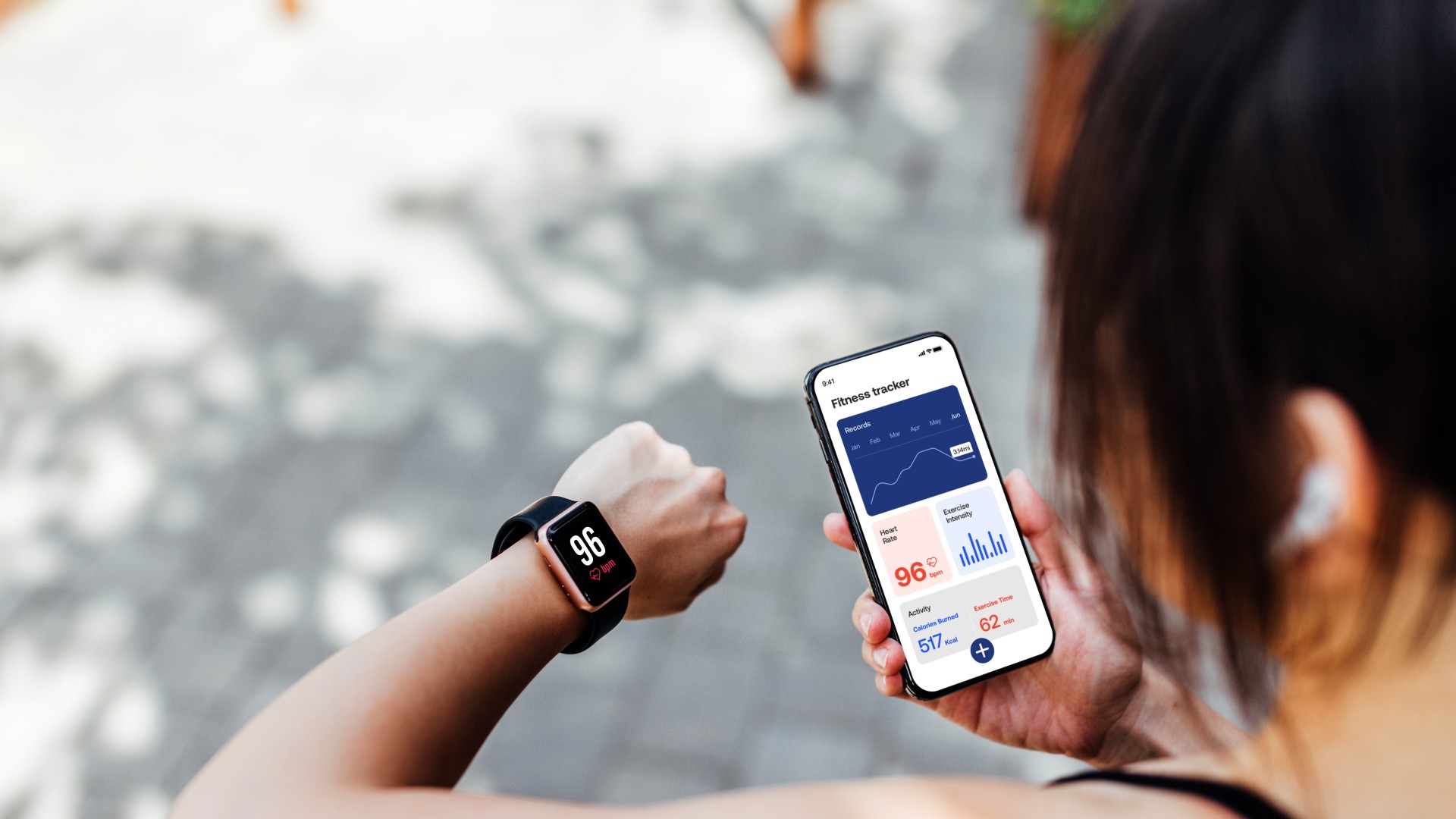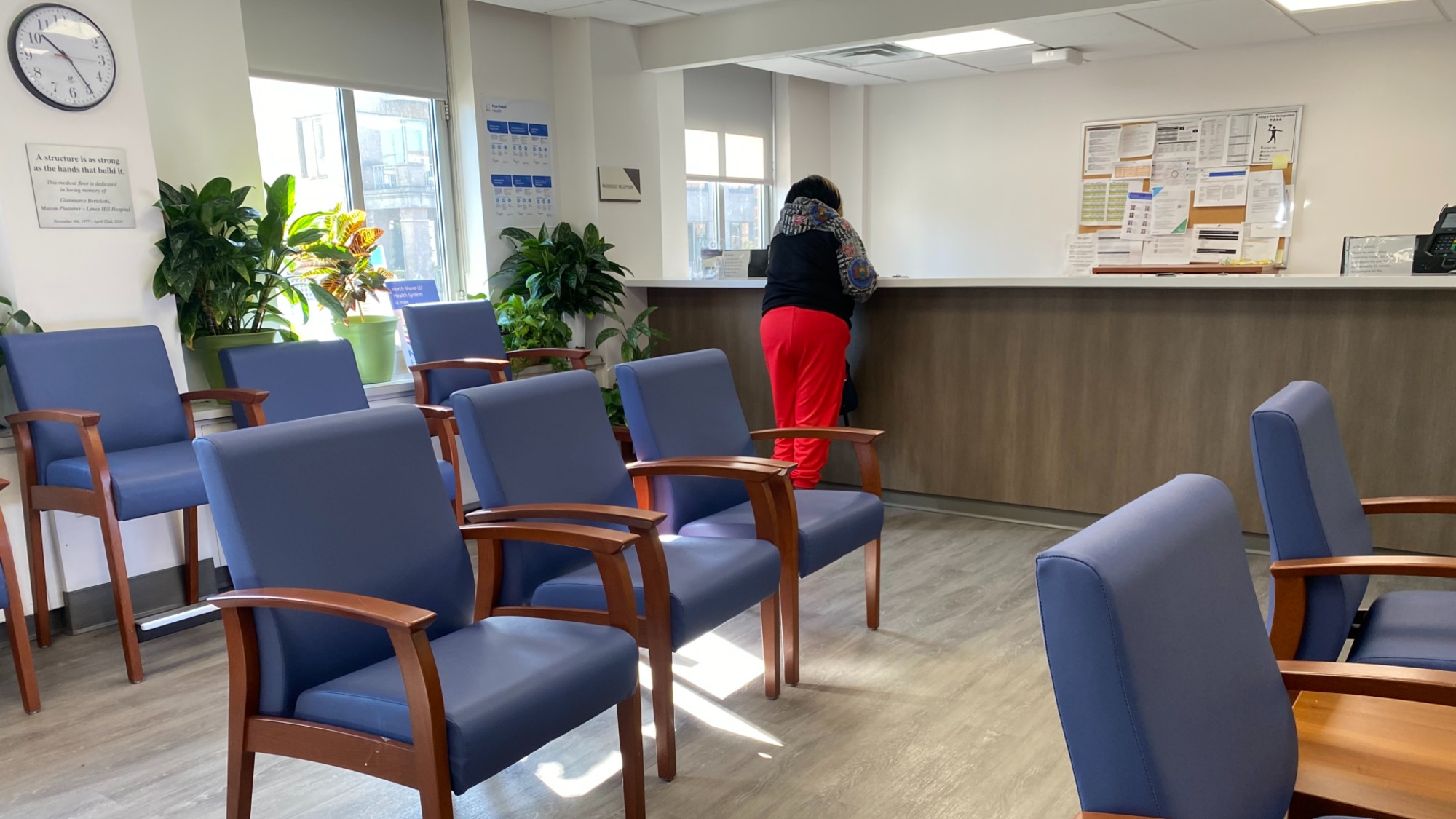5 ways to try tech-based preventative health care
Technology can help steer you in a healthier direction and keep future health issues at bay.


A free daily email with the biggest news stories of the day – and the best features from TheWeek.com
You are now subscribed
Your newsletter sign-up was successful
Technology has long infiltrated most facets of our lives, and health care is no exception. While there are things such as the integration of artificial technology to look forward to in future medicine, there are already plenty of other ways to experiment with high-tech preventative health care.
Telemedicine
Video conferencing apps such as Zoom have become popular tools for the health care industry. Virtual doctor visits exploded during the early lockdown period of the Covid-19 pandemic, as health care providers looked for ways to continue seeing patients while minimizing the spread of the virus. While doctors have mostly returned to providing in-person appointments, telemedicine has remained a convenient option to check in with your physician or to see someone for relatively minor health issues.
If your doctor doesn't offer telemedicine appointments, you can try Amazon's new telemedicine option at its virtual clinic, available in all 50 states. With the clinic, the retail giant aims to help remove barriers to treating "everyday health concerns," Amazon's chief medical officer Dr. Nworah Ayogu said in a blog post, per the Associated Press.
The Week
Escape your echo chamber. Get the facts behind the news, plus analysis from multiple perspectives.

Sign up for The Week's Free Newsletters
From our morning news briefing to a weekly Good News Newsletter, get the best of The Week delivered directly to your inbox.
From our morning news briefing to a weekly Good News Newsletter, get the best of The Week delivered directly to your inbox.
Wearable technology
When it comes to health and fitness, wearable technology like smartwatches or FitBits is an easy way to experience what health care tech has to offer. ]You can use the devices to track fitness progress or monitor your heart rate. They also come in a range of prices, so if an Apple Watch is out of your price point, you have other options. Researchers from University College London recently found that wearable technology could be used to detect a heightened risk of heart failure or irregular heartbeats later in life.
One of the benefits of wearables is that they encourage people to develop healthy habits, which could lessen the risk of developing complications such as diabetes, hypertension and heart disease later on in life. Plus, it's a device that goes everywhere with you, just like a phone. "It’s an advantage that makes wearables powerful,” said Robert Havasy, senior director of connected health at the Healthcare Information and Management Systems Society.
Health care apps
Alongside wearable technology, apps are another easy way to ease tech into your health and wellness routine. Some can connect to your wearable tech and store data like your daily step count. You can also use apps as self-monitoring tools to keep track of your nutrition, sleep patterns, or physical activity. They could help build healthier habits or keep track of information to share with your physicians. While the effectiveness of some mental health apps has been questioned, they minimally provide a way to get acquainted with psychological care.
High-tech spas and retreats
Wellness tourism isn't anything new, but some spas and resorts are taking it to the next level by offering high-tech preventative care. Hotels and resorts "are trading in the old-school yoga-and-massage approach for advanced wellness treatments that claim to foster longevity, often blending Western diagnostic testing with Eastern therapies," Nora Walsh wrote for The New York Times. They offer services such as red light therapy, cryotherapy, comprehensive blood tests and 3D scans under the direction of doctors, physiotherapists and Chinese medicine practitioners.
A free daily email with the biggest news stories of the day – and the best features from TheWeek.com
While many of these treatments promise to reduce inflammation and stress in the body, experts note that there need to be more long-term studies to prove their effectiveness. "A lot of these therapies will make you feel better, but I wouldn’t hold out hope they do anything else," Dr. William Kapp, an orthopedic surgeon and founding partner of preventive health and longevity company Fountain Life, told the Times. "There is no magic bullet yet."
Extended reality
Another tech trend to watch out for is the use of extended reality, "a catch-all term covering virtual reality (VR), augmented reality (AR) and mixed reality (MR)," Bernard Marr explained in Forbes. "They all have potentially transformative applications in the healthcare sector." These technologies use lenses or headsets to create immersive virtual environments or merge virtual elements with real-time images of your surroundings. Doctors already use VR as a training tool. As far as treatment, virtual reality exposure therapy (VRET) has been used to immerse people in three-dimensional environments that can help treat phobias and PTSD. The concept is relatively new but has shown promise in enhancing cognitive behavioral therapy (CBT).
Theara Coleman has worked as a staff writer at The Week since September 2022. She frequently writes about technology, education, literature and general news. She was previously a contributing writer and assistant editor at Honeysuckle Magazine, where she covered racial politics and cannabis industry news.
-
 Local elections 2026: where are they and who is expected to win?
Local elections 2026: where are they and who is expected to win?The Explainer Labour is braced for heavy losses and U-turn on postponing some council elections hasn’t helped the party’s prospects
-
 6 of the world’s most accessible destinations
6 of the world’s most accessible destinationsThe Week Recommends Experience all of Berlin, Singapore and Sydney
-
 How the FCC’s ‘equal time’ rule works
How the FCC’s ‘equal time’ rule worksIn the Spotlight The law is at the heart of the Colbert-CBS conflict
-
 ‘Zero trimester’ influencers believe a healthy pregnancy is a choice
‘Zero trimester’ influencers believe a healthy pregnancy is a choiceThe Explainer Is prepping during the preconception period the answer for hopeful couples?
-
 Stopping GLP-1s raises complicated questions for pregnancy
Stopping GLP-1s raises complicated questions for pregnancyThe Explainer Stopping the medication could be risky during pregnancy, but there is more to the story to be uncovered
-
 RFK Jr. sets his sights on linking antidepressants to mass violence
RFK Jr. sets his sights on linking antidepressants to mass violenceThe Explainer The health secretary’s crusade to Make America Healthy Again has vital mental health medications on the agenda
-
 Nitazene is quietly increasing opioid deaths
Nitazene is quietly increasing opioid deathsThe explainer The drug is usually consumed accidentally
-
 The plant-based portfolio diet invests in your heart’s health
The plant-based portfolio diet invests in your heart’s healthThe Explainer Its guidelines are flexible and vegan-friendly
-
 Tips for surviving loneliness during the holiday season — with or without people
Tips for surviving loneliness during the holiday season — with or without peoplethe week recommends Solitude is different from loneliness
-
 More women are using more testosterone despite limited research
More women are using more testosterone despite limited researchThe explainer There is no FDA-approved testosterone product for women
-
 Doctors sound the alarm about insurance company ‘downcoding’
Doctors sound the alarm about insurance company ‘downcoding’The Explainer ‘It’s blatantly disrespectful,’ one doctor said
